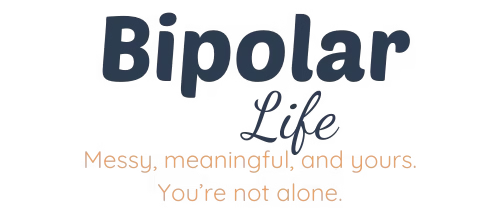Talking About Medication with a Loved One (Without Judgment)
Talking about mental health medication can feel like walking a tightrope—especially with someone you care deeply about. Whether you’re the one taking medication or it’s your loved one, the conversation is layered with emotion, personal history, and often, fear of being misunderstood.
We don’t always talk openly about what it means to manage mental health. Talking about mental health medication adds an even harder level of conversation. Sometimes it’s wrapped in stigma, shame, or strong opinions. But these conversations matter. They can deepen trust, foster compassion, and remind us that support doesn’t require full understanding—it just asks for presence, respect, and care.
This post isn’t about convincing anyone to take or avoid medication. It’s about creating space for honest, respectful dialogue. Because judgment—whether subtle or direct—can shut down the very conversations that help us heal. These honest conversations can allow both sides to see things from a different perception and help find the treatment plan that truly supports the person at the center of it.
Why This Conversation Can Be Hard
Medication isn’t just a treatment plan—it’s often tied to identity, fear, and deeply held beliefs. Whether someone is considering medication, adjusting it, or choosing not to take it, there’s often an emotional storm underneath the surface. For many, taking medication feels like admitting something is “wrong” or permanent. It can also be seen as a “fix” that means no further assistance is needed—as if medication replaces therapy, support systems, or other methods of treatment. For others, it might bring up trauma from past experiences with the healthcare system, side effects, or being misunderstood.
Stigma plays a huge role. We live in a culture that often praises “toughing it out” and minimizes invisible struggles. There may be cultural, generational, or personal narratives that say medication is a weakness—or that needing it means you’re broken or failing. Those messages don’t disappear when you enter a relationship. In fact, they often show up louder when someone close to you expresses doubt or judgment. And with bipolar disorder in particular, close family members may feel personally implicated or even attacked—since it’s often seen as a genetic disorder. That can make conversations even more emotionally charged.
And then there’s the fear of being reduced to a diagnosis. People with bipolar disorder, depression, anxiety, or other mental health conditions often fight hard to be seen as whole people—not just “patients.” For those with bipolar, there’s often the added challenge of coexisting diagnoses like OCD, ADHD, or anxiety—which can complicate both treatment and perception. No one wants to feel limited to a label, or as if their entire identity is boiled down to a checklist of symptoms. So when medication becomes part of the conversation, it’s no surprise that defenses go up. No one wants to feel like they’re being managed, fixed, or watched.
Starting from Curiosity, Not Control
The most supportive conversations about medication start with one simple principle: curiosity over control. When we come from a place of genuine curiosity—wanting to understand instead of fix—we create a space where vulnerability feels safer. That doesn’t mean we always say the right thing, but it does mean we’re showing up with openness instead of an agenda. And it works best when both sides are open—when there’s a shared willingness to listen, learn, and stay present even in the discomfort.
Instead of “Why are you taking that?” try asking, “What has this been like for you?” From the perspective of someone living with bipolar disorder, questions like “What do you see?” or “How does this affect you?” can be especially powerful. They shift the focus from diagnosis to lived experience. Instead of offering advice, listen without interruption. Let silence be okay. You don’t need to fill every pause with a solution. Sometimes, the most validating thing you can say is, “I hear you,” or “That makes sense.” These conversations aren’t about arriving at the perfect outcome—they’re about deepening connection.
It’s also okay to admit when you don’t understand. Mental health is complex, and treatment choices aren’t always straightforward. Saying “I don’t know what that’s like, but I want to understand” can go further than trying to compare, fix, or minimize. This may not be a one-time conversation, but something that’s revisited regularly. For that to happen, both sides need to be willing to see and understand each other—not just once, but over time. Curiosity builds trust. It signals, You’re safe to be real with me.
If You’re the One on Medication
Talking about your medication—especially with people who love you—can be one of the most vulnerable things you do. It requires trust, honesty, and often, a lot of emotional labor. If you’re the one on medication, remember this: you are allowed to protect your peace and still share your truth. Protecting your medical information is just as important. Some people you’ll be able to share more with than others, and that’s okay. You get to choose who has access to your story.
When you choose to open up, focus on what medication means for you. You don’t have to justify every decision or explain every detail. You don’t have to share medication names or dosages. This conversation is about how the medication is helping you live better—not a debate about what you “should” be taking or how much. That’s a discussion for you and your medical provider. Of course, how much you want others to know is entirely up to you. You might say, “Medication helps me stay more balanced,” or “It gives me a foundation to work from.” Avoid getting pulled into proving that you’re “sick enough” or trying to convince anyone of your right to treatment. Your experience is valid, whether or not others fully understand it.
It’s also okay to set boundaries in the conversation. If someone asks something you’re not comfortable answering, you can say, “I’m not ready to talk about that yet,” or “That’s not helpful for me to discuss right now.” Opening up doesn’t mean giving up your privacy—it means trusting someone enough to let them in, a little at a time. And these conversations should not leave you feeling to blame, weak, or broken. If they start to feel that way, it might be time to walk away and revisit it later. Let the other person know that this is meant to be a supportive dialogue—and you are not willing to risk your health or stability just to make them understand.
If Your Loved One Is on Medication
When someone you care about is on medication for their mental health, it can stir up all kinds of emotions—concern, confusion, fear, even guilt. That’s normal. What matters is how you show up for them. Showing up can be as simple or as complex as you’re comfortable with—it might be a single conversation or ongoing support. The most powerful thing you can offer isn’t advice—it’s nonjudgmental support. And that includes being supportive even if your loved one has chosen not to take medication. Respect starts with believing in their right to make informed decisions about their own health.
Respect their autonomy. Even if you don’t fully understand their diagnosis or treatment plan, you don’t need to. You may even want to ask if it’s something they’re okay with you researching. Learning about bipolar disorder—or any mental health condition—is valuable, but it’s also important to understand how deeply personal and variable it is. Just because a study, article, or doctor says one thing doesn’t mean it will apply to your loved one in the same way. Respecting their lived experience matters just as much as understanding the clinical picture.
Also, be mindful not to weaponize their medication. Don’t bring it up during arguments or use it to dismiss their emotions. Taking meds doesn’t mean someone is irrational or incapable—it means they’re investing in their wellbeing. Medications often take time to take effect, and side effects can make what seems like a “great” option completely unusable for someone. It’s a process, not a magic fix. Ask what support looks like for them. They may want space, or they may want you to simply check in and listen. Either way, your job is to listen first, not lead.
Navigating Disagreements or Discomfort
It’s okay if you don’t see eye to eye on everything. Conversations about mental health and medication can bring up personal values, past traumas, and deep-seated fears on both sides. Disagreements might happen—but how you handle them matters more than whether you resolve them right away. Remember that this is a health issue, and it deserves the same seriousness and compassion we would offer someone navigating a physical illness. Mental health is not secondary—it’s foundational.
Focus on shared values: health, stability, mutual respect, and trust. If you’re feeling overwhelmed, take a step back. It’s better to pause the conversation than to let it spiral into blame or shame. Be mindful that, especially with bipolar disorder, intense conversations can sometimes trigger or escalate emotional responses. No one wants a discussion meant to build understanding to cause an episode. Sometimes, just a small amount of time and space can offer clarity and a deeper appreciation for what’s being said. You can say, “I care about you and want to understand, but I think we both need a moment to breathe.” That’s not walking away—it’s preserving the relationship.
And if you’re the one being judged or pressured, it’s okay to draw a line. You can say, “This isn’t up for debate,” or “I need you to trust that I know what’s best for me right now.” Respect goes both ways. You don’t owe anyone your mental health story—and you don’t need to prove your pain or justify your choices to be supported. In some extreme cases, you may need to limit or even sever interaction with someone who consistently disrespects your boundaries. If they are unable to respect you or your choices, protecting your stability becomes vital. Your mental health management is not negotiable—it’s essential.
Conclusion: These Conversations Are Acts of Care
Talking about medication with a loved one isn’t easy—but it can be one of the most powerful ways to build understanding, trust, and healing. That healing may not be just theirs. If you’ve been hurt during an episode—emotionally or otherwise—you may need to rebuild trust too. Seeing your loved one’s willingness to seek help can be a vital part of that process, a sign that change and accountability are possible. Whether you’re the one taking medication or the one supporting someone who is, these conversations are an invitation to connect more deeply—not to fix, persuade, or control.
When you approach each other with curiosity instead of judgment, when you speak honestly while respecting boundaries, and when you hold space for each other’s fears and hopes—you create something rare and vital: safety. And that safety allows you both to be more open with each other. It becomes a foundation for even deeper healing—for both of you.
Keep the conversation going. You don’t have to get it perfect. You just have to stay present, stay open, and remember that love doesn’t require agreement—it requires compassion.

